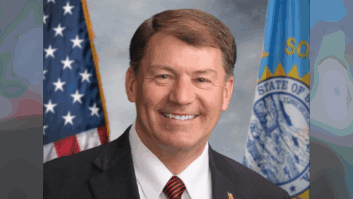The following is from “Independence and Integrity II: An Updated Ethics Guide for Public Radio Journalism.”Principles:
Consider the fundamental values that underlie public radio journalism:
- Journalists seek truth, both facts and context;
- Journalists serve their communities by connecting people with information they need to participate in civic life, and to guard against abuses of power;
- Public radio journalism aims to be impartial and independent; special care must be taken to ensure that those who seek to influence the news are not given special access;
- Journalists must act ethically, to serve their audiences’ best interests.
Editorial Decision-Making
1. What is the ethical problem? Carefully consider and define the problem at hand.
2. What organizational policies and professional standards apply? How do your station’s codes and guidelines apply here?
3. What is the journalistic purpose?
4. Who else should be included in the decision-making process? Staff members, your news director, other colleagues?
5. Who are the stakeholders affected by my decision? If the roles were reversed, how would I feel as a stakeholder?
6. What alternatives are there?
7. Do I have to decide now?
8. Could I go on the air and justify this decision to my listeners?
Monitoring Balance
Listen systematically to your coverage of a given issue over a said period of time – say, a month. Note whose interest is served by the stories, and whether a particular individual or group comes out looking good or bad. Taken together, do the stories provide a balanced assessment of the issues and participants, or do they slant in one direction?
In Pursuit of Fairness, Accuracy and Balance
1. Have the people affected or harmed by the story been given ample opportunity to reply? If harm is inevitable, have I sought to minimize it where possible?
2. Have I provided listeners sufficient background context to understand the story fully? Are there major questions left unanswered? Is there anything I know that I am not telling my listeners, which, if they knew it, would change their view of the story?
3. Might my personal feelings have affected my handling of this story in any way? Do I have relationships with sources or subjects that would compromise my ability to cover the story fairly, or allow someone to claim my ability was compromised?
4. How confident am I about the credibility of this information? Do my sources have vested interests in getting this information out? Is there a disinterested, independent source of this information with whom I could check?
5. If I am using anonymous sources, is there another possible source of the information? Can I make a compelling case to my listeners for using the anonymous source?
6. Have I attributed, documented and double-checked all the basic facts of the story? Did my tape editing distort the essence of the actuality or of the event?
7. Have I sought out all the relevant points of view of the story, and avoided creating “artificially polarized” sides? Have I edited the story so that all sides are heard, and in proportion to their importance to the story?
8. Am I presenting the news and views of all segments of the community I serve? Do I continue to “round up the usual suspects” in choosing sources, or have I brought in new sources with new perspectives?
9. Does the diversity of our staff match the diversity of the community?
10. If broadcasting a “subjective” program with a point of view, have I let my listeners know?The Network Updates Its In-House Ethics Guide for Public Radio Journalism
These have been difficult times for journalism.
The New York Times and USA Today have been rocked by scandals involving reporters fabricating sources and stories. Boadcast and cable networks are lightning rods for criticism from conservative groups who say organizations like CNN, CBS and NPR have tilted to the left. Meanwhile, some on the left criticize Fox News and various talk shows as mouthpieces for the right.
It is in this environment that NPR has updated its in-house ethics guide, last revised in 1995. The new version is called “Independence and Integrity II: An Updated Ethics Guide for Public Radio Journalism.”
NPR Ombudsman Jeffrey Dvorkin says much has changed in 10 years, especially with the advent of online journalism and digital technology.
Also, “I think NPR felt that as a public broadcaster, it had an additional obligation to set some standards, both for the system as a whole and for listeners, so they can know what we stand for and judge us by it.”
The guide gets a thumbs-up from journalist Pat Duggins, news director at public station WFME(FM) in Orlando, Fla., and NPR’s resident expert on space. He says he was “enthused” by progress reports while the guide was being written, and it has not disappointed him.
“Now we’ve got FTP, the Internet … it’s amazing how fast the world’s changing.”
Standards
The guide stresses the importance of system-wide standards.
“We’ve become a little more mature about the need … so we’re able to be a little more directive without imposing the will of big stations on the small ones, or NPR on its member stations,” Dvorkin said. In that sense, NPR is more like a “trade organization” than a traditional network, he said.
The guide was written with the help of public radio general managers, news directors and producers at the local and national levels.
“We also had help from academics, and legal advice,” said Dvorkin, who described the process as “a year-long talk fest to get a sense of the most important and pressing issues that bedevil the system on a daily and ongoing basis. ”
The process culminated with a meeting at the Poynter Institute, a journalism school in St Petersburg, Fla. The sessions left an impression on Dvorkin, who said, “I think there’s a real hunger among journalists, producers, program directors and station managers to talk about ethics. It’s so important to us; and of course, in the rush to deadline, we never get a chance.”
The guide occupies about 30 pages. While some of the topics seem elementary, Dvorkin says it’s important that they be addressed. Nearly a third of the guide is devoted to “fairness, accuracy and balance” and the importance of basic principles such as “fact-based reporting” and journalists serving communities by seeking the truth in their daily work.
The text states, “Public radio journalism aims to be impartial and independent; special care must be taken to ensure that that those who seek to influence the news are not given special access. Journalists must act ethically to serve their audiences’ best interest.”
A six-page section deals with the “core values” of news programming, written in 2001. It includes information drawn from listener research (“Core public radio listeners draw a clear line local information they can get from other sources … and coverage that gives them knowledge, understanding and makes them think.”); it stresses the importance of local newsrooms adhering to NPR’s example (“There is no advantage in local origination if the presentation is below network standards.”).
The section stresses accuracy, reliability, accountability, fairness, dignity and privacy (“This is especially important when it comes to reporting on tragedy and trauma.”); it discusses the reliability of sources (“The very act of reporting a claim on public radio may confer upon it a sense of legitimacy. We should not broadcast information from untrustworthy sources … While routine stories may occasionally be based on a single official source, significant or controversial stories should be based on more than one source.”).
And it deals with depth, context (“Public radio journalism should avoid oversimplification of stories.”) and conflict of interest, with seven bullet points and eight questions journalists should consider.
Two pages are devoted to online journalism, covering streaming audio, Web logs or “blogs,” links and online forums.
“We wanted to create a mindfulness about ethical decisions and journalism. Not that journalists in general … are unethical, but we’re kind of ‘inethical.’ We don’t talk about it enough, and so it often doesn’t become a conscious element in our decision-making process of how to do stories,” Dvorkin said.
Since publication, he’s received numerous phone calls and e-mails from journalists who’ve been reminded of situations that have occurred at their stations.
“We’re now able to help each other more,” Dvorkin said. “Everyone becomes kind of an ethical sounding board.”
WMFE’s Duggins agrees but adds that managers need to continue to assume responsibility for their on-air product, leading by example. He says he tries to ensure that reporters doublecheck their work for multiple sourcing and fairness.
The story’s important, he says, but so is the human element.
“Remember, you can ruin lives, you can ruin careers. Be very careful how you do this. The media can be a weapon, and you can really hurt people if you’re not careful with it.”
Best and worst
Dvorkin was vice president of news for NPR for three years before becoming the organization’s ombudsman, its link to listeners. He said that being on the firing line is “mostly the most interesting journalistic job I’ve ever had. It’s the best job in journalism most of the time; a couple of days a month it’s the worst job in journalism.”
The worst days include “being hammered by organized pressure groups … and when we’ve made a mistake and deserve to take our knocks. People are very brittle and anxious and angry, and their tolerance of what that think of as ‘the wrong opinion,’ errors or what they think is a deliberate attempt to spin the news … People have a low tolerance for the ordinary mistakes of journalism. … And that has made the pressure on journalists overall much more intense than I’ve experiences in more than 30 years in journalism.”
How about the conservative perception that NPR tilts to the left? Dvorkin says NPR and all journalists need to better communicate what journalism tries to accomplish. He believes some listeners confuse fact-based reporting with commentary or opinion, all of which are NPR staples. And he says NPR has to do a better job of differentiating reporting from commentary.
Dvorkin says he receives about 1,000 listener e-mails per week, positive and negative.
“People are more motivated to complain than praise, but we do get kudos from time to time.”







